Monsters, Super-Science, and Devastating Family Secrets: Aurora West by Paul Pope, JT Petty, and David Rubin
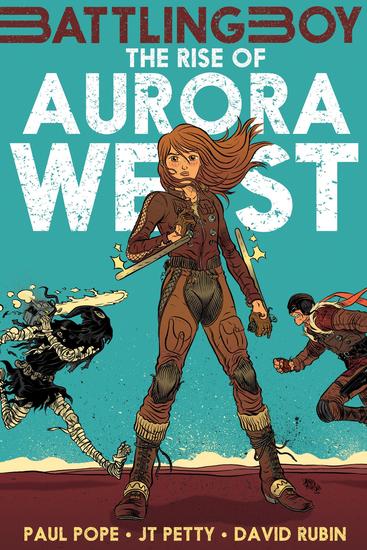 |
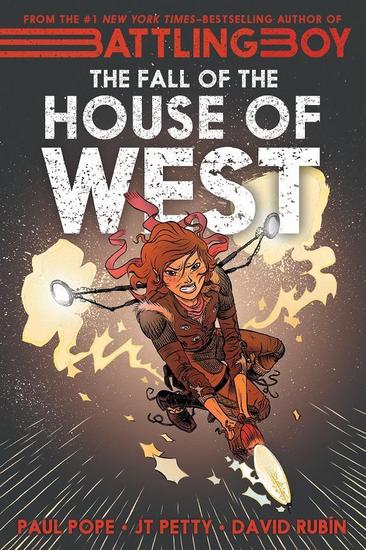 |
When I started my new job last month, I began taking the train into the city every day for the first time. St. Charles to Chicago, an hour each way. That’s a long time to be staring at all those suburbs going by. So I did two things immediately: I upgraded to a new iPhone 6s, which allowed me to keep up with all my blogs on the go (especially Politico, Tor.com, and MSNBC), and I started catching up on graphic novels.
For my first month on the job (at least until Alice got me a subscription to The New York Times as a birthday present last week), I read almost exclusively comics and graphic novels on the train, digging into the huge stack I’d accumulated over the past eighteen months. I read Original Sin, a cosmic mystery featuring Marvel’s greatest heroes as they attempted to solve the murder of The Watcher. I enjoyed Rick Remender’s gonzo dimension-hopping adventure Black Science, and the 2016 Hugo nominee Invisible Republic, a really superior far-future political thriller, and lots more.
In short, I read some pretty fine stuff. But the crème-de-la-crème was a two-volume story featuring Aurora West, a compelling heroine who was completely new to me: The Rise of Aurora West and The Fall of the House of West. Aurora accompanies her father Haggard West, greatest hero of the beleaguered city of Arcopolis, as he races across rooftops, investigates the mysterious origins of the strange plague of monsters bedeviling his city, and solves bizarre crimes. But in the process Aurora stumbles on clues relating to a long-forgotten crime, and begins an investigation of her own… one that leads to a series of revelations that challenge everything she knows, and threatens the very future of Arcopolis.
[Click the images for bigger versions.]
The tale of Aurora West is fast paced and fun, and reminded me more than anything of the brilliant early storytelling of Stan Lee and Steve Ditko, with its compelling mix of crises both super and mundane.
Teenage Aurora — in between home-school lessons in advanced chemistry, math, and martial arts — follows eagerly in her father’s footsteps as he patrols the increasingly dangerous city of Arcopolis. Haggard West is the only thing keeping his city from being completely overrun by a mysterious plague of monsters, but the situation is growing worse, as the monsters grow both more daring and more numerous.
Haggard is what we call a Science Hero, like Tony Stark and Bruce Wayne — a man without spider strength, or the ability to cloud men’s minds, or any helpful gifts of that nature. Instead he relies on his flair for building extremely useful sciency stuff like jet packs, blasters, and a nifty lab where he does ridiculously dangerous atomic research.
Haggard is called “Arcopolis’ wiliest detective,” and indeed the biggest thing he has going for him is his keen intellect. That, and his obsessive drive to cleanse his city of monsters.
Haggard’s obsession derives from a family tragedy. Aurora’s mother Rosetta was killed under mysterious circumstance on the night of her husband’s greatest triumph, when he sealed the monsters threatening the city underground using a new plasma cannon — seemingly for good.
But Rosetta, who fought alongside her husband and whose genius intellect was easily the match of Haggard’s, never showed up at the victory celebration. She was killed en route by an immensely strong, seven-fingered monster, and Haggard’s blind quest for revenge in subsequent years nearly destroyed Acropolis, as Haggard neglected his duties even when the monsters re-emerged. They nearly destroyed the city before Haggard recovered enough to stop them.
The monster that killed Rosetta was never found. Her death is Haggard’s greatest failure, and the fate of the city depends on his ability to resist being dragged back into another lengthy and fruitless search for her killer.
So when Aurora stumbles onto a clue to her mother’s death — in the form of a strangely familiar symbol from her early childhood, scratched into the floor of an abandoned monster lair — she knows better than to involve her father. Instead, she decides to investigate herself.
But what begins as an exercise in teenage independence quickly becomes something far more as Aurora’s discoveries begin to compound. Soon she is investigating the diabolical schemes of Sadisto, one of the most ruthless monsters in the city, for ties to a strange creature from her childhood, known as Mister Wurple.
Could it be that the imaginary friend she had as a child was not so quite imaginary after all? Could it, in fact, have become a deadly killer?
Aurora West is a spin-off of (and prequel to) Paul Pope’s New York Times bestseller graphic novel Battling Boy. Paul Pope is also the creator behind Heavy Liquid, 100%, and Batman: Year 100. I haven’t read Battling Boy yet, but I bought a copy as soon as I finished The Fall of the House of West.
The creative team for Aurora West isn’t the same as Battling Boy, however. This time Pope shares the writing credit with JT Petty (Bloody Chester), and the art is handled by Spanish artist David Rubin.
Interestingly enough, while it took a few pages to get used to Rubin’s art — on first glance I found it to be messy and uncontrolled, sometimes tipping over into cartoonishness — I soon discovered that I appreciated it very much.
In his capable hands monster-haunted Acropolis becomes a darkly beautiful place, filled with moonlit alleys and rooftop apartments, where well-dressed monsters lurk in the shadows and artists labor over macabre creations. Every nook and cranny of Rubin’s carefully-crafted world is filled with fascinating detail, and he brings that world to life with a vibrant intensity.
Rubin also proves extremely adept at characters, especially the villains. He renders the colorful monster gangs of Acropolis with imaginative flair. In a book about monster hunting, the monsters gotta shine, and Rubin’s monsters are top notch.
Ultimately though, these two volumes are about Aurora West, and Rubin proves extraordinarily gifted at conveying Aurora’s grit and determination, without ever forgetting that his protagonist is a young teenage girl. One of my favorite sequences is page 92 of The Rise of Aurora West, in which Aurora searches for clues on the bizarre nature of the strange creature from her childhood — a monster more smoke and fog than anything else. But when she stealthily quizzes her father on fog creatures she gets far more than she bargained for, and Haggard’s coldly detailed lesson on how he dispatched a sentient slime that produced “noxious gas from the sphincters along his thorax” gets a predictable reaction.
Aurora is as flawed and as troubled as most teens — impulsive, overconfident, and dangerously naive — but, young and inexperienced as she is, she ultimately proves to be a superior detective to her legendary father. She penetrates deep into the heart of a mystery that has dark ramifications for her city and her family, and she is unflinching in her quest for the truth.
This is a very dark tale, and while it’s marketed for young adults, be warned that it has its share of tragedy, attempted suicides, child kidnapping, and death. The stakes are nothing less than the survival of Acropolis. The city needs a hero, and as the challenges mount it becomes increasingly clear that Haggard, as determined and resourceful as he is, may not be capable of saving it this time. That task may fall to his daughter.
I hope there are a lot more stories featuring Aurora. This is her story, and she carries it effortlessly.
In fact, she shines. Long live Aurora West.
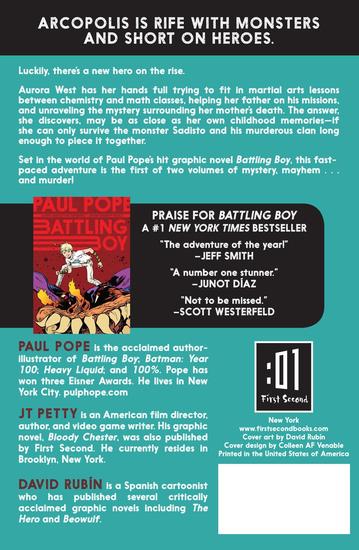 |
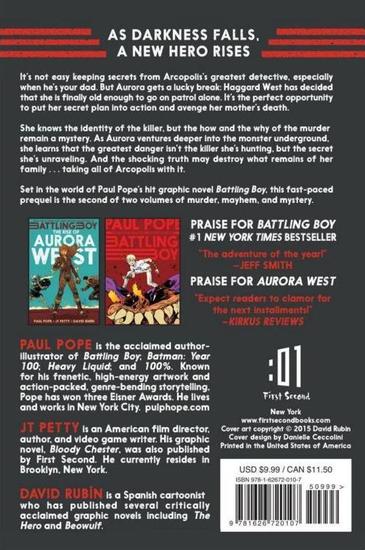 |
The Rise of Aurora West was published by First Second on September 30, 2014. It is 156 pages, priced at $9.99 in paperback and $7.09 for the digital edition. The cover is by David Rubin.
The Fall of the House of West was published by First Second on October 13, 2015. It is 158 pages, priced at $9.99 in paperback and $7.09 for the digital edition. The cover is by David Rubin.
See all of our recent Comics coverage here.
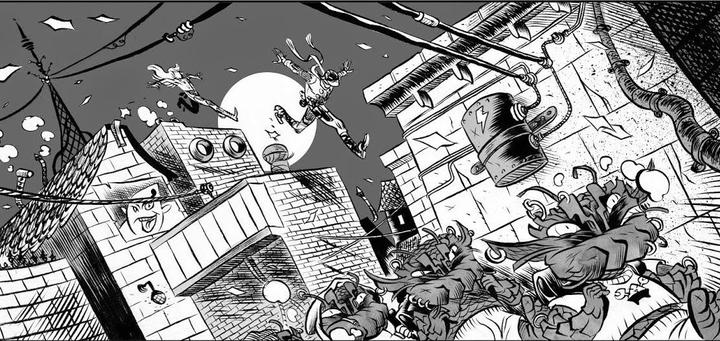
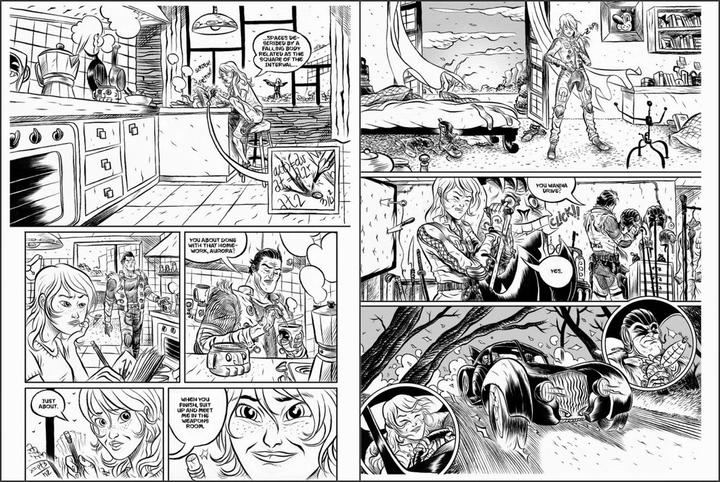
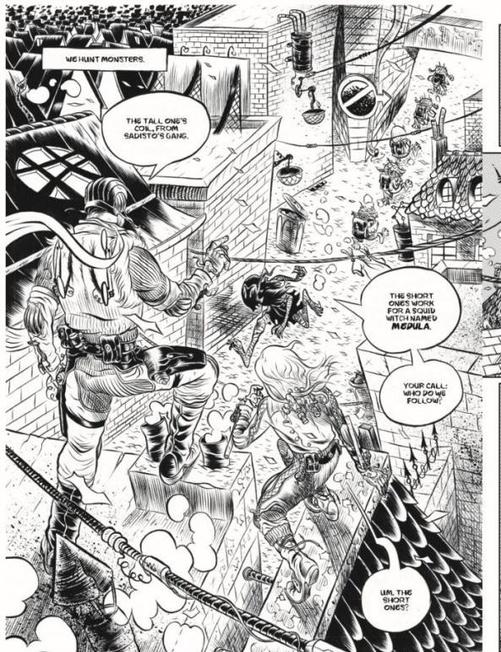
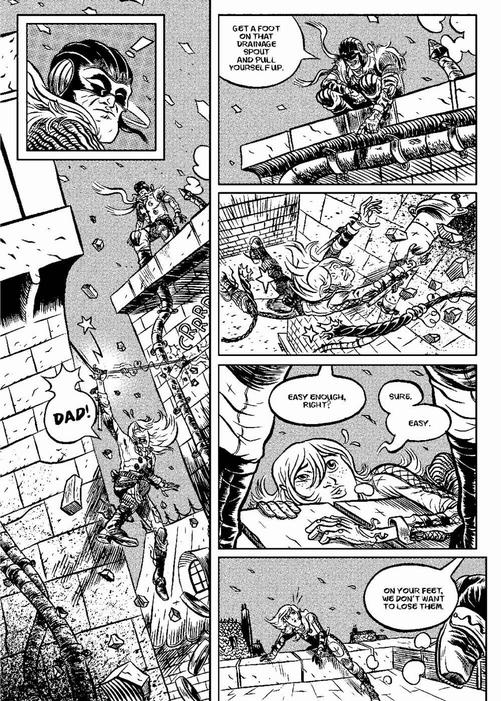
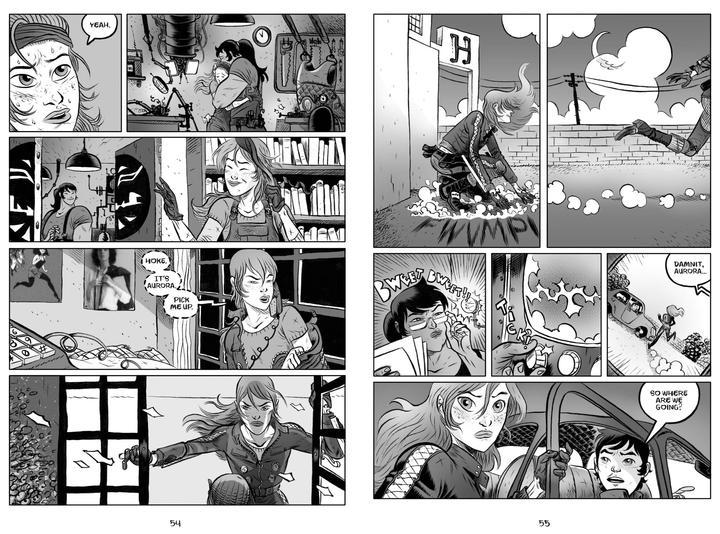
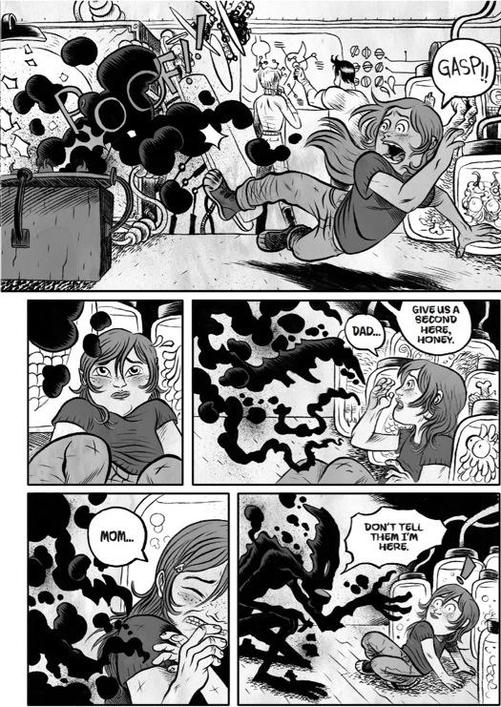
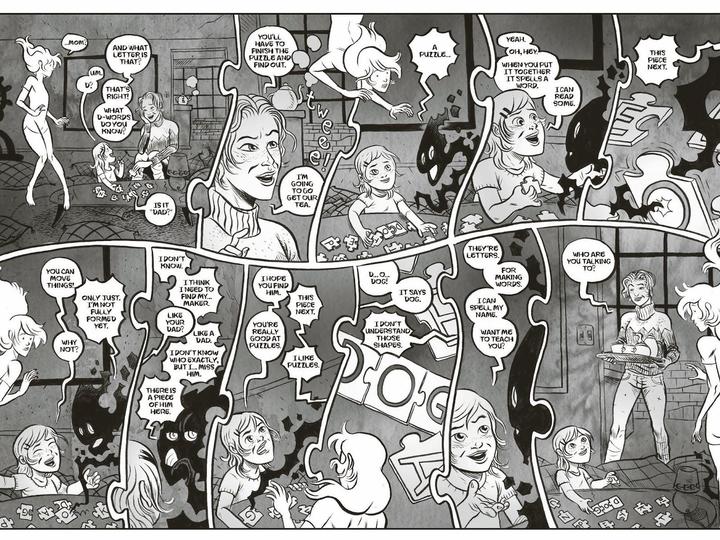
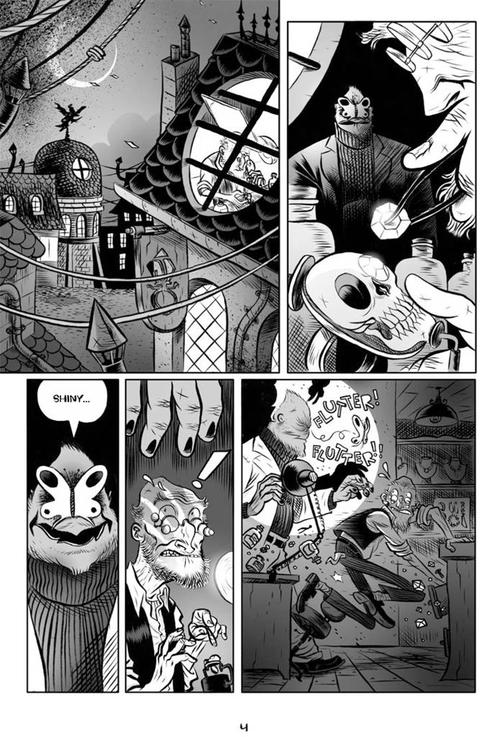
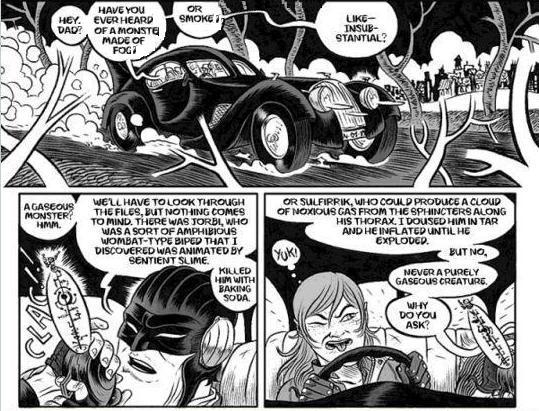
I liked the “Battling Boy” precursor also. Especially the beginning, tribute to Moebius/Heavy Metal stuff at its best. The boy seems a bit ‘slacker’ and needs some stuffing kicked into him – kind of bad for his background, he should have been more ready, but otherwise excellent.
The strong Pulp elements are what I like about the Aurora West storyline – the “Science Hero” the self-created Overman her father is – IS because despite his death he’s inspiring others to become him.
Curious, though – if this story had “Aten West” a son in this model, would this story be getting a good review here?
> if this story had “Aten West” a son in this model, would this story be getting a good review here?
Green,
Don’t be ridiculous. You know we scorn all books with male protagonists. Who doesn’t?
Oh, for Pete’s sake (or, for that matter, Hengest’s): https://www.blackgate.com/2015/06/06/the-series-series-shieldwall-barbarians-by-m-harold-page/